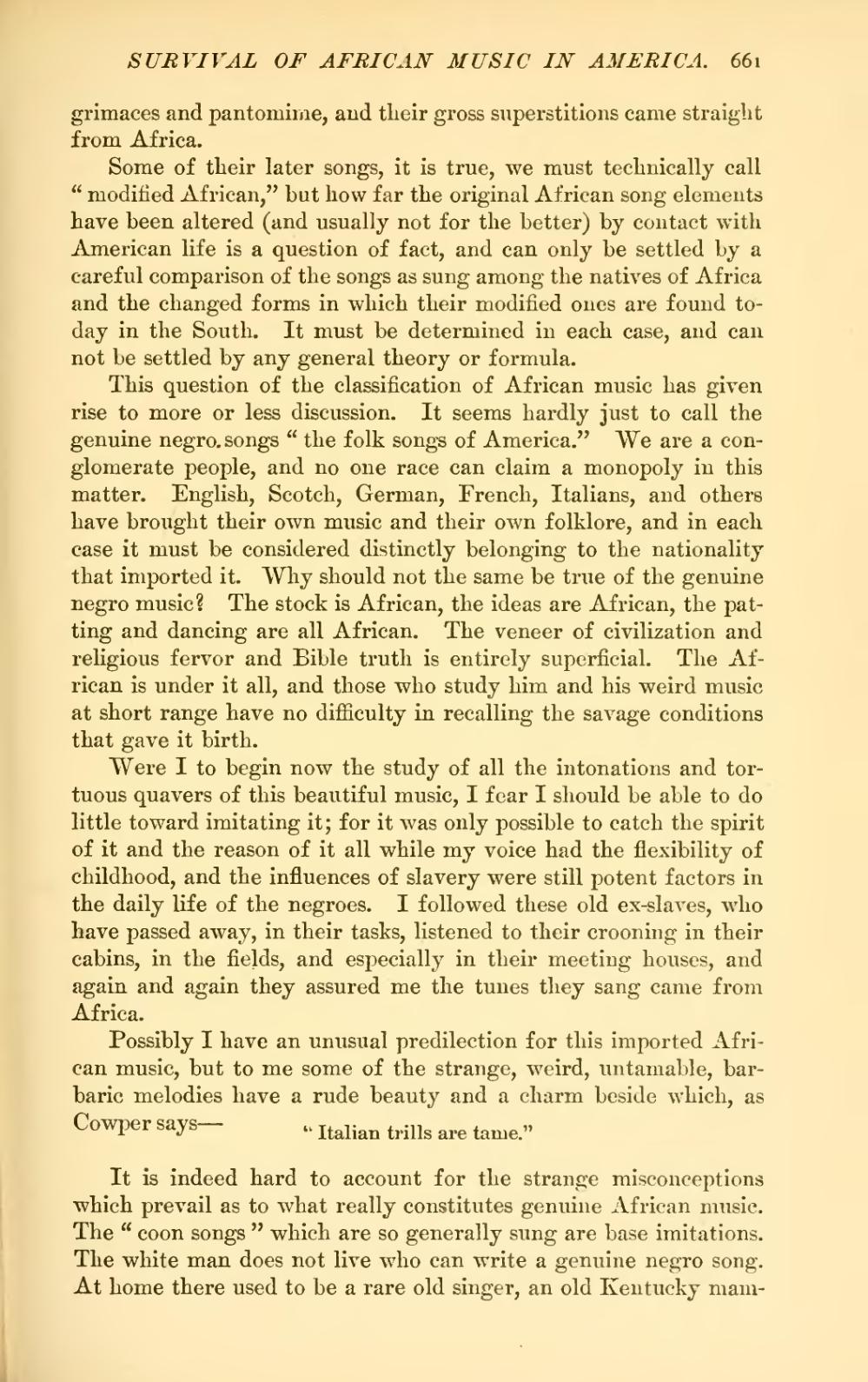grimaces and pantomime, and their gross superstitions came straight from Africa.
Some of their later songs, it is true, we must technically call "modified African," but how far the original African song elements have been altered (and usually not for the better) by contact with American life is a question of fact, and can only be settled by a careful comparison of the songs as sung among the natives of Africa and the changed forms in which their modified ones are found to-day in the South. It must be determined in each case, and can not be settled by any general theory or formula.
This question of the classification of African music has given rise to more or less discussion. It seems hardly just to call the genuine negro, songs "the folk songs of America." We are a conglomerate people, and no one race can claim a monopoly in this matter. English, Scotch, German, French, Italians, and others have brought their own music and their own folklore, and in each case it must be considered distinctly belonging to the nationality that imported it. Why should not the same be true of the genuine negro music? The stock is African, the ideas are African, the patting and dancing are all African. The veneer of civilization and religious fervor and Bible truth is entirely superficial. The African is under it all, and those who study him and his weird music at short range have no difficulty in recalling the savage conditions that gave it birth.
Were I to begin now the study of all the intonations and tortuous quavers of this beautiful music, I fear I should be able to do little toward imitating it; for it was only possible to catch the spirit of it and the reason of it all while my voice had the flexibility of childhood, and the influences of slavery were still potent factors in the daily life of the negroes. I followed these old ex-slaves, who have passed away, in their tasks, listened to their crooning in their cabins, in the fields, and especially in their meeting houses, and again and again they assured me the tunes they sang came from Africa.
Possibly I have an unusual predilection for this imported African music, but to me some of the strange, weird, untamable, barbaric melodies have a rude beauty and a charm beside which, as Cowper says—
"Italian trills are tame."
It is indeed hard to account for the strange misconceptions which prevail as to what really constitutes genuine African music. The "coon songs" which are so generally sung are base imitations. The white man does not live who can write a genuine negro song. At home there used to be a rare old singer, an old Kentucky mam-
